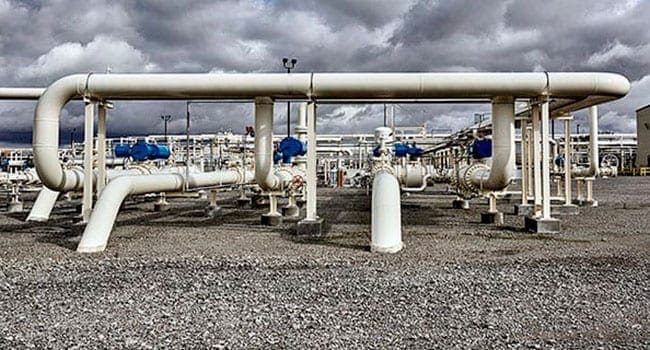 Canadians pondering our energy future might do well to take into account how others see us.
Canadians pondering our energy future might do well to take into account how others see us.
It would give them comfort to know the sector is actually in pretty good hands – at least in the opinion of folks able to view things from a neutral perspective.
For a relatively young country, we have an old (and honourable) energy history. But because we live with it daily, we’re perhaps not as acutely aware of how important that energy history is in a global context. Nor do we recognized that other jurisdictions see Canada as an international role model.
For many outside of Canada, the things Canadians take for granted about energy development are looked upon with envy.
Canadians would do well to see – as others do – our energy record as something worthy of pride rather than disdain or even despair.
Those who believe the mainstream media coverage might be tempted to believe that the Canadian energy record blots an otherwise sterling international reputation.
But talk to the men and women in charge of other countries’ energy dynamics and an entirely different view of Canada’s energy competencies emerges.
What’s the common link between Canada’s diverse capabilities?
The ethical approach we take to energy development that balances environmental dynamics and economic realities.
On a recent energy tour of Poland, Hungary and Croatia, discussions with diverse energy stakeholders provided interesting perspectives on what Canada has to offer in terms of technical, safety, regulatory, educational, political, experience and practice.
The tour was organized by Ottawa’s trade commissioner service to showcase Canadian investment opportunities and heighten trade opportunities.
Our domestic dynamic has evolved to make Canada attractive as a trade partner and supplier of expertise, perspective and social conscience.
Energy freedoms are also a major difference between our approach and theirs.
Take our system’s transparency as an example.
Many Canadians are largely ignorant of the transparency on which our energy systems are built.
Want to know what an energy company paid to lease Crown land? No problem. Interested in knowing who was issued a well licence yesterday. Again, no problem. Curious about a company’s hydrocarbon production volumes? Easy.
It’s all in the public domain – and it makes for an incredibly vibrant and competitive industry. Data availability to anyone with an interest is core to how many of our systems function, not just for the energy sector but for Canadian society as a whole.
That’s one dimension the Poles, Hungarians and Croatians deeply admire, because the system works for the citizens who actually own the molecules.
And that system of data transparency has been evolving and improving over the decades to create robust, competitive and accountable markets.
How we balance energy development and environmental sustainability are also of great interest, as are how we consult on major energy issues.
Canadians might be confused given perceived failures to consult about major pipeline projects. But central Europeans would give their eye teeth to have our processes.
The other area drawing attention is the way Canada is advancing its energy systems mix; the balanced approach that recognizes no single energy system can be wholly independent. Whether this is driven by regulation or the market, Canada’s approach is eyed with admiration.
Central Europeans are particularly interested in Canadian energy dynamics because they would like to be less dependent on a less-than-dependable source for the bulk of their domestic energy. The 12 countries of central Europe want to be less reliant on Russian natural gas, from pricing and security of supply perspectives. They’re making a variety of moves to become more energy self-sufficient, as well as wean themselves off coal over the long term.
For Canada, that means new market opportunities for our hydrocarbons, and our energy products and services.
Certainly Canada shouldn’t rest on its laurels simply because others admire our systems and approaches. Being an energy leader comes with the burden of running a race that has no finish line.
But it’s nice to know we’re well ahead of a large part of the pack.
It’s too bad more Canadians can’t see that.
Bill Whitelaw is president and CEO at JuneWarren-Nickle’s Energy Group.
Bill is a Troy Media contributor. Why aren’t you?
The views, opinions and positions expressed by columnists and contributors are the author’s alone. They do not inherently or expressly reflect the views, opinions and/or positions of our publication.


